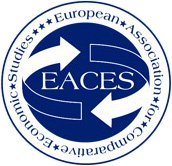Background
Following the multiple shocks of transition to a market economy, the global financial crisis, the Covid pandemic and the destructive effects of the wars in Ukraine and Gaza, the economies of South East Europe (SEE) and EU neighbourhood and other peripheral countries are under increasing strain. In the context of weak convergence to European levels, what are the main drivers and barriers to growth in the economies of the SEE region? Recently, the EU has launched a new Growth Plan for the Western Balkans. But will this be sufficient to make a difference to economic growth prospects? Is there evidence that EU candidature or membership makes a real contribution to economic convergence? How far has military conflict impacted
the economies of these regions and how is this likely to affect convergence prospects in SEE, the EU neighbourhood and other peripheral countries? Research evidence on these issues can be derived from multiple axes of analysis including research on the effects of different macroeconomic policies on growth; on different forms of industrial organisation on the efficiency of business operations; the impact of barriers to entry of new firms on the development of the SME sector; the role of industrial policy; opportunities for technological innovation and leapfrogging derived from the adoption of new digital technologies including artificial intelligence; emerging skill shortages and skill mismatches; the role of financial systems and financialisation in supporting economic growth; the influence of green policies in driving economic growth; the effect of institutions and state capture in hindering economic growth in the region; and the impact of economic growth on labour markets and the distribution of incomes. These and other issues can be discussed at this workshop.
Aims
The workshop series provides a forum for presentation of research on all aspects of economic transition and European integration in South Eastern Europe. Papers are welcome from all traditions of economic theory and analysis. Empirical papers focusing on the comparative analysis of economies of the region are encouraged, while individual country studies related to the workshop themes are also welcome. After the workshop, papers will be considered for publication in a thematic issue of Economic Annals to be published in autumn 2024. The following themes can be covered at the workshop, as can any other topic in the field of comparative economic studies.
Workshop Themes
Comparative economics of SEE, EU neighbourhood and other peripheral economies
Drivers and barriers to economic growth and convergence in SEE economies
The effects of EU candidature and membership on economic growth
Macroeconomic policies and economic growth
Financial economics and financialisation
Political economy of transition in SEE
Effects of military conflict on economic development
Business organisation and performance
Industrial policy and innovation
Labour markets, human capital, and migration
Green investments and the environment
The full text of the call for proposals is available here.
Event category: Events